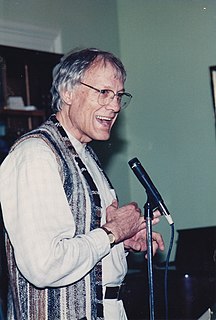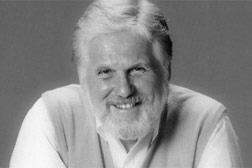A Quote by Dietrich Bonhoeffer
As brother stands by brother in distress, binding up his wounds and soothing his pain, so let us show our love towards our enemy. There is no deeper distress to be found in the world, no pain more bitter than our enemy's. Nowhere is service more necessary or more blessed than when we serve our enemies.
Related Quotes
Pain - physical, emotional and spiritual pain - is more than just a condition that needs to be silenced, numbed or "fixed." Pain in all its forms is also a message, a kind of distress signal to our hearts and minds. There are times when it's really important to tune into that message and just listen to it. When we don't listen, our understanding of the world gets more and more distorted, and we become capable of doing things we very often regret.
Before making peace, war is necessary, and that war must be made with our self. Our worst enemy is our self: our faults, our weaknesses, our limitations. And our mind is such a traitor! What does it? It covers our faults even from our own eyes, and points out to us the reason for all our difficulties: others! So it constantly deludes us, keeping us unaware of the real enemy, and pushes us towards those others to fight them, showing them to us as our enemies.
The gift our enemy may be able to bring us: to see aspects of ourselves that we cannot discover any other way than through our enemies. Our friends seldom tell us these things; they are our friends precisely because they are able to overlook or ignore this part of us. The enemy is thus not merely a hurdle to be leaped on the way to God. The enemy can be the way to God. We cannot come to terms with our shadow except through our enemies.
If contemplation of other people's pain just increases distress, then I think we should see it in another way. If we don't center too much on ourselves, then [we] increase our courage and our determination to remedy the pain, not our distress. If we have unconditional compassion, then it increases our courage. So that's the difference, self-centered motivation versus altruistic motivation.
This is the amazing story of God’s grace. God saves us by His grace and transforms us more and more into the likeness of His Son by His grace. In all our trials and afflictions, He sustains and strengthens us by His grace. He calls us by grace to perform our own unique function within the Body of Christ. Then, again by grace, He gives to each of us the spiritual gifts necessary to fulfill our calling. As we serve Him, He makes that service acceptable to Himself by grace, and then rewards us a hundredfold by grace.
The deeper our faith, the more doubt we must endure; the deeper our hope, the more prone we are to despair; the deeper our love, the more pain its loss will bring: these are a few of the paradoxes we must hold as human beings. If we refuse to hold them in the hopes of living without doubt, despair, and pain, we also find ourselves living without faith, hope, and love.
Christian love draws no distinction between one enemy and another, except that the more bitter our enemy's hatred, the greater his need of love. Be his enmity political or religious, he has nothing to expect from a follower of Jesus but unqualified love. In such love there is not inner discord between the private person and official capacity. In both we are disciples of Christ, or we are not Christians at all.
The love for our enemies takes us along the way of the cross and into fellowship with the Crucified. The more we are driven along this road, the more certain is the victory of love over the enemy's hatred. For then it is not the disciple's own love, but the love of Jesus Christ alone, who for the sake of his enemies went to the cross and prayed for them as he hung there.
The more complex our security becomes, the more complex our enemy's efforts must be.The more we seek to shut him out, the better he must learn to become at breaking in.Each new level of security that we manage becomes no more than a stepping-stone for him who would surpass us, for he bases his next assault upon our best defenses.It is a ware that can never truly be won… but one we dare not lose.
Our God...is a consuming fire. And if we, by love, become transformed into Him and burn as He burns, His fire will be our everlasting joy. But if we refuse His love and remain in the coldness of sin and opposition to Him and to other men then will His fire (by our own choice rather than His) become our everlasting enemy, and Love, instead of being our joy, will become our torment and our destruction.



































